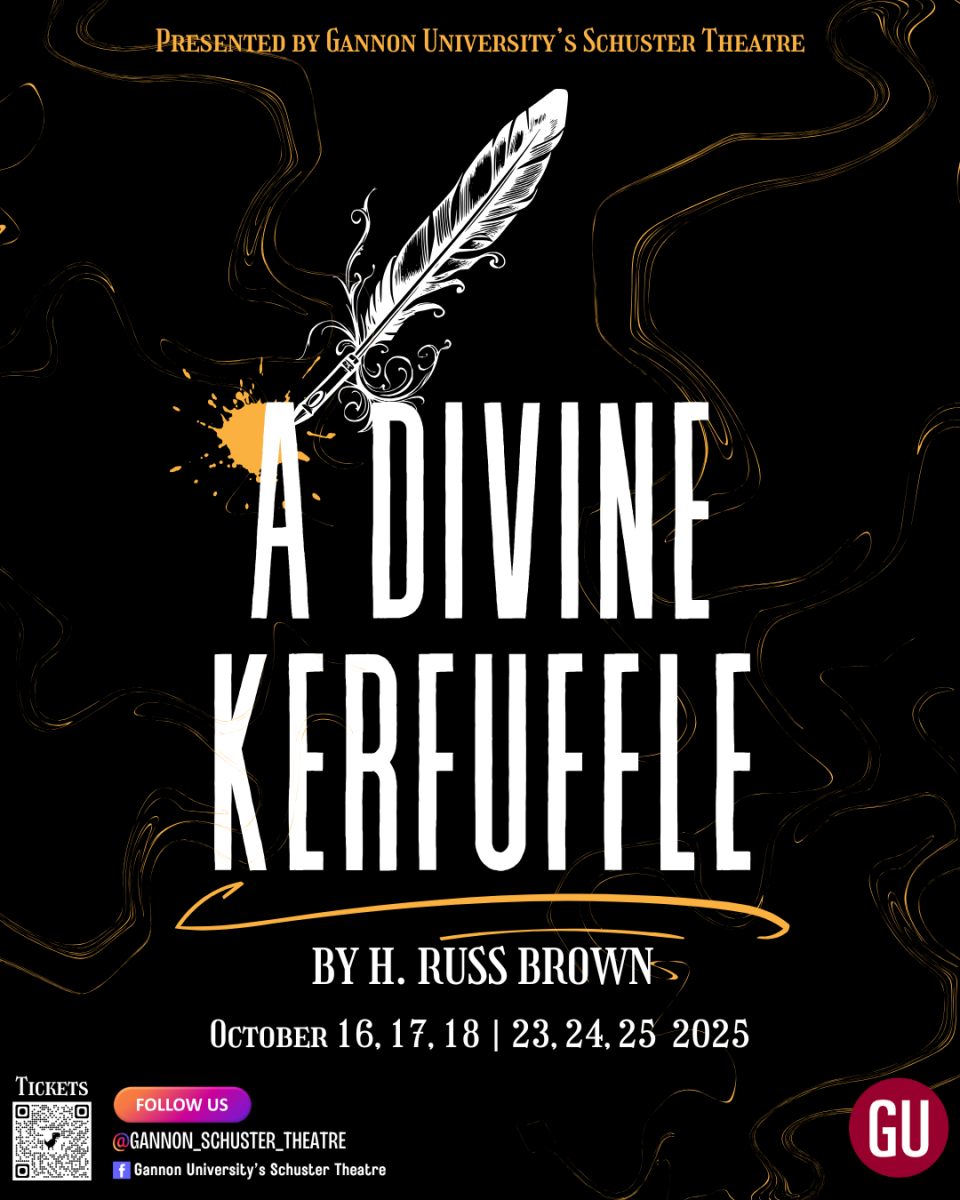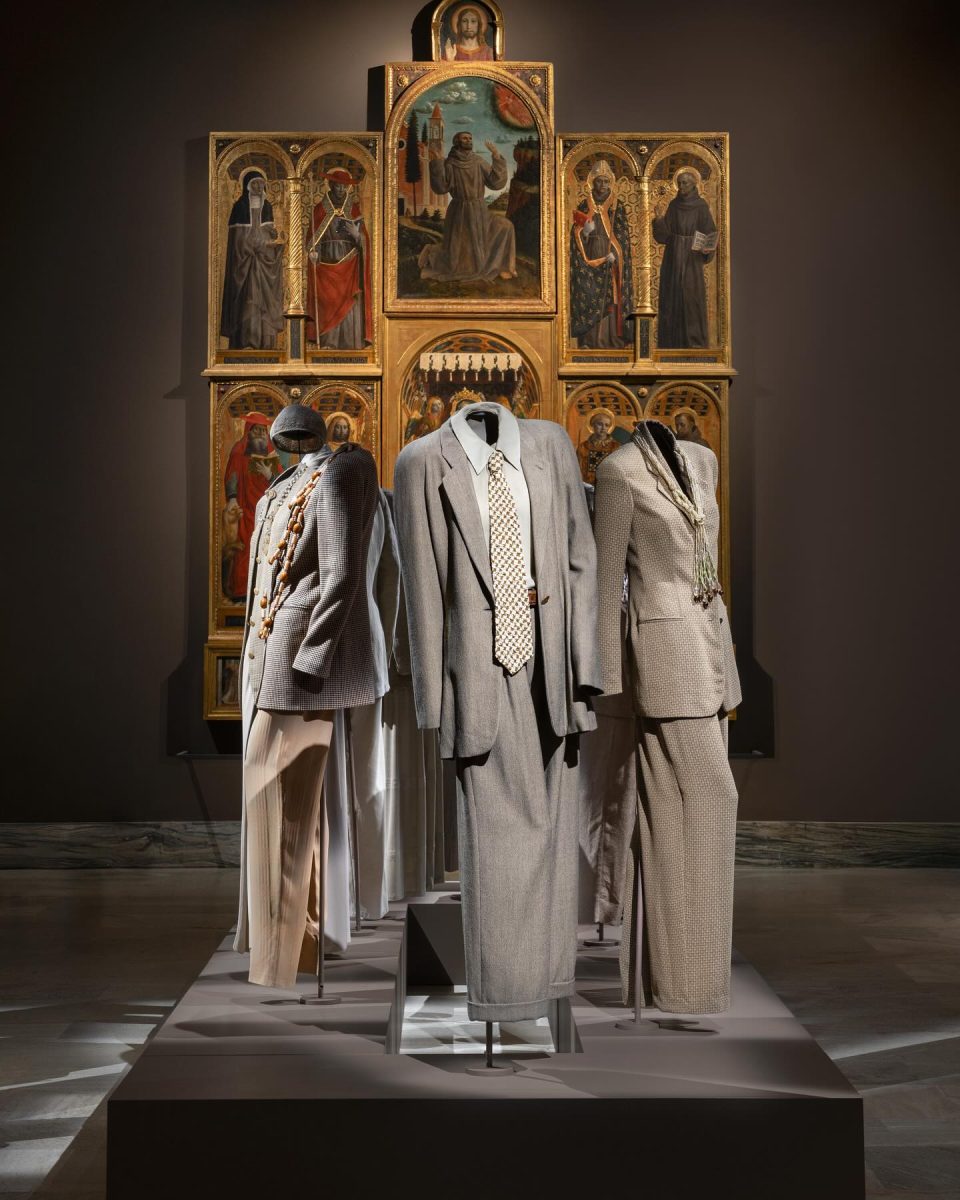October 24, 2025/Midnight
Erie, PA. – The clashing of swords, a theatrical thud of footsteps, booming voices, and exaggerated expressions are all in the lively opening of A Divine Kerfuffle.
From the very first moments, the audience is swept into the exaggerated humor and heightened emotion of the play. At its heart is “Divine Sarah,” who is a famous actress of the Victorian era, dazzling in her confidence yet haunted by an unrelenting fear: the fear of being forgotten and being replaced by a younger generation of talent.
In the play, through the fictional Head of Theatre and Artistic Director Cyril Tidd of the Daly Theatre, Sarah encounters The Crumbling Biscuit, which is a play written by Tidd’s nephew, Digby P. Bardwell. The actress immediately believes that this work was written especially for her and could become the defining role of her career. With that conviction, she does everything to prove her talent and secure the part. But standing in her way is Eleanor Duse, a rising young star.
Sarah is portrayed by Anna Skinner, a senior Theatre and Communication Arts major at Gannon University, who commands the stage with an exaggerated flair befitting a diva of the farce era. Sarah performs dramatically not only on the stage as a farce actress, but also in her everyday life.
Every gesture and movement of Sarah drew laughter from the audience, from the scene where she crawls on long couches to strike up a conversation, to the moments when she leans in so close to her co-stars that their faces almost touch, or when her eyes bulge wide open at the mention of Eleanora’s name from reporters. The moments when she hears about the number of votes between she and her rival, Sarah lunges forward, snatches a knife, and drives it straight into the rival’s portrait hanging on the wall. It’s these dramatic but graceful actions that fill the theater with bursts of laughter.
A delightful highlight of the play is Herta, Sarah’s devoted maid and loyal right hand. Herta is a lively reflection of her mistress’s inner world. She brings laughter to the audience through gestures that are both subtle and exaggerated: the loud slam of a door when dismissing those who offend Sarah, a sharp frown, or a stomp of the foot when Eleanor’s name is mentioned, and a threatening little cough to defend her mistress’s pride.
Herta seems to understand Sarah’s every emotional shift so much that when Sarah rushes toward her rival’s portrait in anger, Herta instantly hands her a knife. The moment, though small, drew hearty laughter from the audience, which is a testament to the duo’s graceful timing and seamless chemistry on stage.
The play is vividly brought to life through multilingual dialogues, reflecting the European setting of the play. Particularly notable is the use of the word “Mademoiselle” when referring to Sarah. More than a polite French address, it symbolizes Sarah’s desire to be seen as eternally youthful, alluring, and at the height of her stardom.
The climax of A Divine Kerfuffle erupts when Sarah and Eleanor – her young and ambitious rival – engage in a fierce sword duel on stage. A sudden twist shatters their rivalry: the role they’ve been fighting over isn’t actually the lead female part at all. In the end, as the chaos subsides, Sarah lifts her head high and continues her journey as a true star of the stage – proud, graceful, and untouchably radiant.
With a finale that is both humorous and heartfelt, The Divine Kerfuffle leaves audiences not only laughing but also with thoughts on the unseen side of the stage – behind the glamour of theatre are souls yearning to be seen, remembered, and loved through their craft.
A Divine Kerfuffle is still running this week, from October 23 to 25 at Schuster Theatre – don’t miss it!







